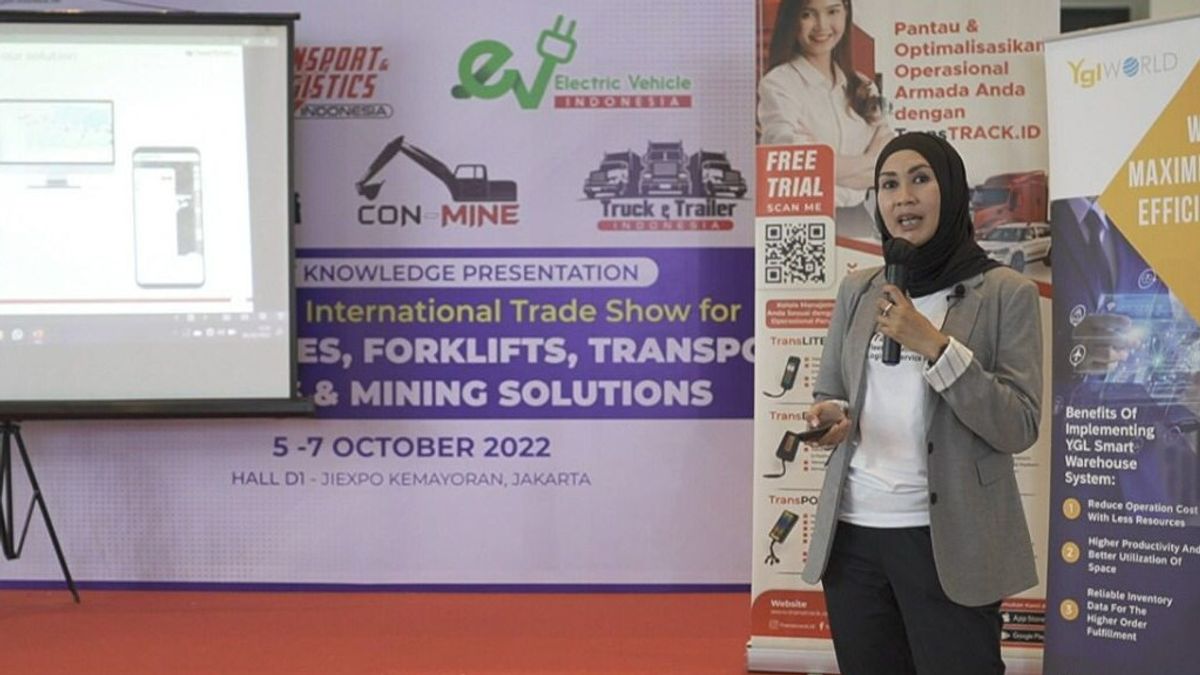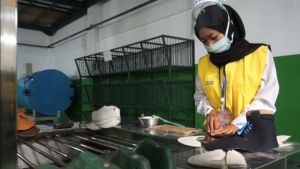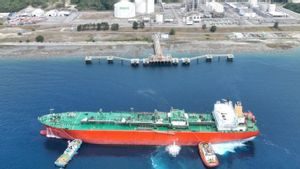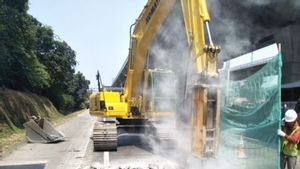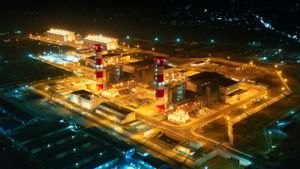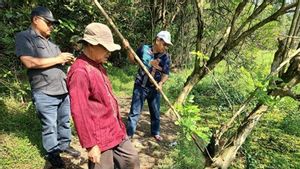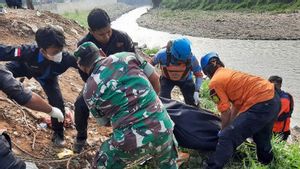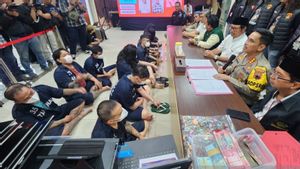JAKARTA - In the first quarter of 2022, the Central Statistics Agency (BPS) recorded economic growth in Indonesia reaching 5.01 percent on an annual basis or year-on-year (yoy). In the first three months of recovery in 2022, according to contributions from the business field, the transportation and warehousing or logistics sector has a big influence and is one of the drivers of recovery.
The growth rate of the transportation and warehousing sector reached 15.79 percent (yoy) with a distribution of 4.62 percent. Then, in the second quarter of 2022 BPS again reported that the Indonesian economy continued to be impressive at 5.44 percent even though it was in the midst of global inflationary pressures and the threat of recession.
This data indicates that the trend of economic recovery in Indonesia continues to strengthen, where its economic performance is influenced by domestic and global factors. Meanwhile, in terms of production, the Industry for Processing, Trade, Transportation and Warehouse (logistics) has brought a large contribution to economic growth in Indonesia.
It is undeniable that the transportation and warehousing industry has become a chain of logistical activities as one of the sectors that participates in contributing to supporting national economic growth. The transportation and logistics business in Indonesia is currently developing rapidly.
Logistic activity throughout the first half of this year also continues to experience growth although it cannot be said to be significant. This growth is influenced by many factors, including efforts to deal with COVID-19 which continues to improve by the government and various other indicators.
However, there are still many things that are obstacles to the transportation and logistics business in carrying out fleet operations. Where the number of commercial vehicles in Indonesia reaches 62 million, but what is connected to the Fleet Management System (FMS) is only around 2 percent of the total vehicle.
FMS, which is defined as an activity to manage a fleet, is very important in maximizing the efficiency of vehicles, monitoring service time, increasing productivity, improving safety, and even fuel consumption. In its function, FMS covers various functions, such as monitoring, driver's management and fuel, to vehicle maintenance.
The way FMS works refers to a technology that allows for the exchange of information between a fleet of vehicles and a central platform. In this system, it requires GPRS and GPS networks, GPS trackers, servers, and telematics software.
The features found in FMS vary between one another. Without FMS, fleet managers will experience limited supervision of their fleets.
These limitations lead to various problems that arise, including increased maintenance and fuel costs, poor service delivery, the possibility of theft, misuse of vehicles and frequent accidents.
Responding to these problems, TransTRACK.ID offers telematical solutions to the all-in-one fleet to help the logistics industry optimize fleet operations. Where the TransTRACK.ID platform will collect and analyze real-time telemetry data such as geolocation, fuel level, distance, and fleet vehicle maintenance warnings.
This software can be easily integrated with more than 1,000 existing GPS devices to obtain driver performance and behavior data. In addition, TransTRACK.ID also offers additional benefits in the form of safety guarantees for drivers by providing insurance protection.
"The COVID-19 pandemic has led to a significant reduction in fleet use, which has actually increased the importance of monitoring and optimizing fleet control," said Anggia Meisesari, CEO & Founder of TransTRACK.ID in a statement, Wednesday, November 2.
Not only that, TransTRACK.ID has also begun to enter logistics and supply chain integrators.
"So we provide visibility for supply chain control, logistics from upstream to Hilir," he continued.
Currently, TransTRACK.ID is in 13 cities and will be targeting up to 25 cities by the end of this year, even to Malaysia and Myanmar.
"And for sure, our main mission is to make Indonesia's path safer and more efficient for logistics business people," he concluded.
The English, Chinese, Japanese, Arabic, and French versions are automatically generated by the AI. So there may still be inaccuracies in translating, please always see Indonesian as our main language. (system supported by DigitalSiber.id)
Most Popular Tags
#ridwan kamil #pramono anung #election 2024 #corpse discovery #Pilot Susi Air is being held hostage by KKBPopular
23 September 2024, 04:11
23 September 2024, 01:05
23 September 2024, 02:15
23 September 2024, 02:33
23 September 2024, 06:08
